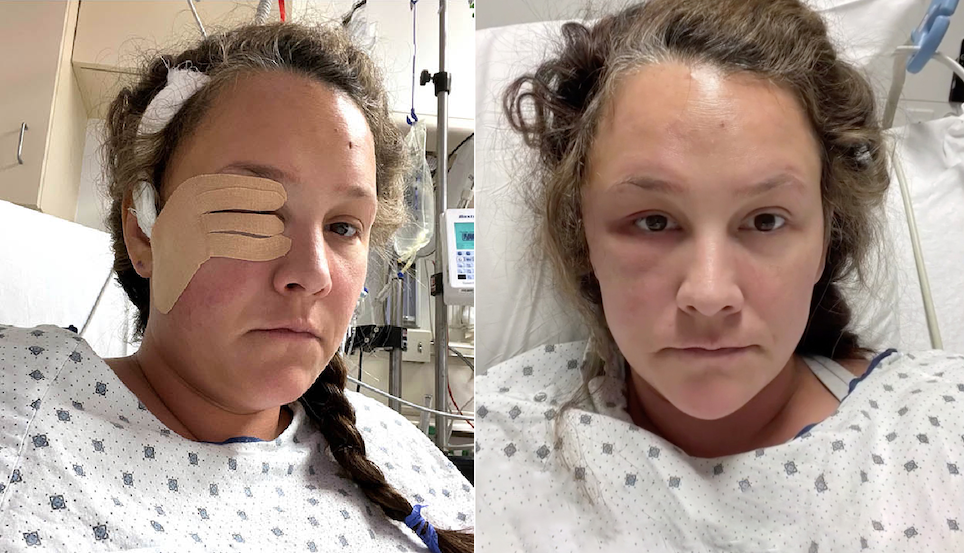“Doctors are people, too, and they can be wrong”, Woman, whose symptoms were dismissed as stress, says doctor told her she was likely suffering from postpartum conversion disorder before she was diagnosed with a rare disease

Doctors initially told the 39-year-0ld mother that her condition was down to stress from being a new mother and she thought it was due to being unfit after pregnancy. One day, the mother collapsed at home and was paralyzed for 30 seconds just few months after giving birth to her son. She went to the hospital and the doctor told her it was most likely due to the stress of motherhood and discharged her. She knew that wasn’t the problem and sought a consultation with a neurologist. CT and MRI scans confirmed that she had been experiencing transient ischemic attacks or mini-strokes, in which blood flow to the brain is temporarily disrupted. Now, she says a surgery saved her life.
The 39-year-old woman from OH, Kate Sippel, told WKYC that she suffered up to 15 mini-strokes a day. Unfortunately, the mother was so worried she would die that she wrote a goodbye letter for her baby son. Sippel initially dismissed her symptoms as due to being unfit after pregnancy. One day, the 39-year-old veterinarian radiologist collapsed at home and was paralyzed for 30 seconds. She went to the hospital and doctors reportedly told her that the condition was down to stress from being a new mother. They went to an emergency room doctor in July 2021, who said it was most likely due to the stress of motherhood and discharged her.
But, according to CC, Sippel reportedly knew that wasn’t the problem and sought a consultation with a neurologist. CT and MRI scans confirmed that she had been experiencing transient ischemic attacks or mini-strokes, in which blood flow to the brain is temporarily disrupted. The doctor reportedly diagnosed Sippel with a disease she was unfamiliar with: moyamoya, referring to the appearance of the tiny blood vessels the brain forms in an attempt to correct the blockages caused by the disease.
The local neurologist also told Sippel that ‘they weren’t big strokes so she could live with them.’ The doctor then put her on medications and said they’d follow-up with her in six months. But, Sippel said that was not acceptable to her and sought a second opinion at another clinic.
She reportedly met with neurosurgeon Dr. Mark Bain who verified her only viable, long-term treatment option was brain surgery. Kate was experiencing frequent TIAs and related symptoms, she faced the possibility the blockages could worsen, causing a major stroke or bleeding in the brain, the Daily Mail reports. The surgery he performed was a cerebral bypass procedure, through a small incision made on the side of Kate’s head. The surgeon reportedly isolated the section of the carotid artery that was blocked, thus rerouting the blood flow through an artery in her scalp.
The 39-year-old mom was discharged two days after the operation in November 2021 and has not had another stroke since. Dr. Bain also said that milder forms of this condition can be treated with aspirin and other blood-thinners. But, Sippel was experiencing frequent strokes and related symptoms, so she faced the possibility blockages could worsen, which could lead to a full-blown stroke.
Now, Sippel encourages other individuals who are affected by a rare disease to self-advocate, as she did, if they are uncomfortable with their initial diagnosis or treatment plans. “My advice is to seek out someone who specializes in the disorder. Because doctors are people, too, and they can be wrong. Ask questions and be your own advocate,” she reportedly told CC.
During an interview with Daily Mail, Dr. Bain reportedly said: “When the brain gets enough blood flow, it reduces the number of wispy immature blood vessels that could cause bleeding in the brain. It’s pretty amazing what the brain can do. The condition is unlikely to be related to pregnancy.”
